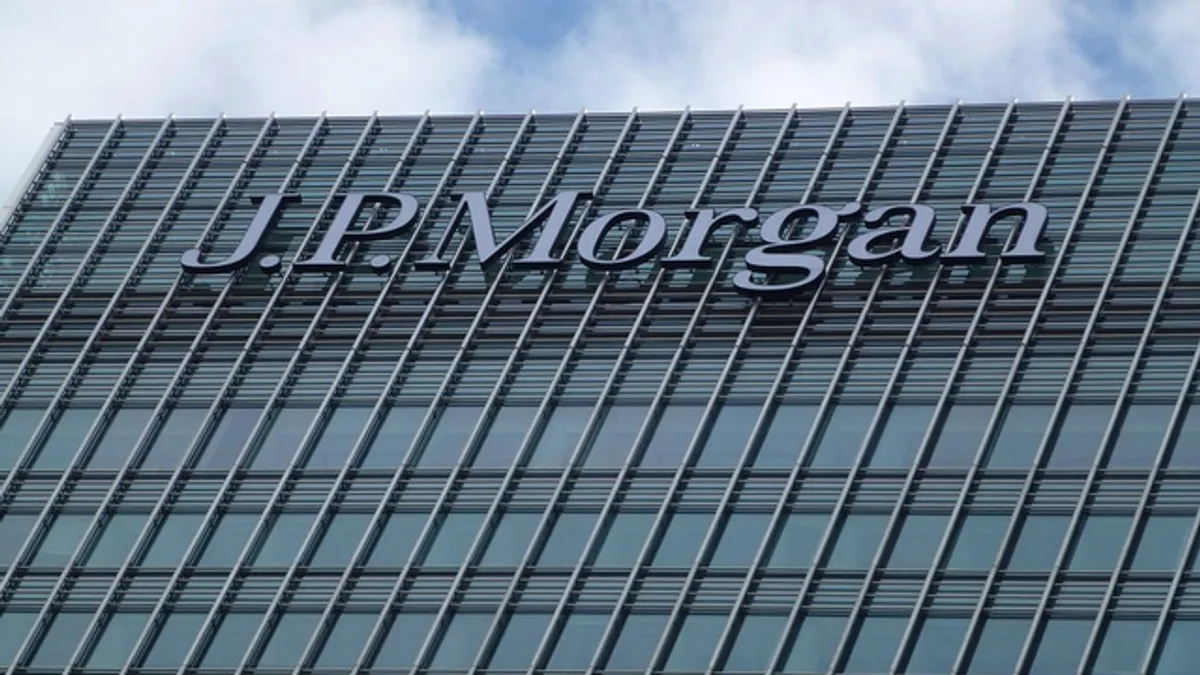Dive Brief:
-
A subsidiary of a JPMorgan-linked investment fund is purchasing Xcel Energy's 720 MW gas-fired power plant, which will again raise questions for federal regulators about the investment bank's legal affiliation to the fund.
-
Southwest Generation, the buyer of the Mankato Energy Center (MEC), is owned by Infrastructure Investments Fund (IIF), a $12 billion investment fund advised and managed by JPMorgan Chase & Co. The Federal Energy Regulatory Commission declined to rule on whether JPMorgan is legally affiliated with IIF in its April approval of the fund's acquisition of El Paso Electric, but Tyson Slocum, director of Public Citizen's Energy Program, says he plans to raise the issue again.
-
The question is not whether the plant transaction should be approved, Slocum told Utility Dive. Rather, he hopes to push FERC's hand on defining the company's relationship with the fund, which he says if left undefined could open a loophole for market manipulation by investment banking companies. But though such a possibility is conceivable, says one lawyer, FERC has rules in place to prevent such a scheme.
Dive Insight:
Under Section 203 of the Federal Power Act, FERC needs to approve major public utility sales, ultimately determining whether those transactions are consistent with the public interest.
In the case of the El Paso Electric purchase, a number of issues were raised regarding potential conflicts of interest with the utility's ratepayers, prompting the intervention of Slocum and a letter from three Democratic Senators urging FERC to correct the record on IIF's legal affiliate status.
But FERC "punted" on the issue earlier this month, and now, Slocum is planning to press FERC again on that definition when the Mankato gas plant sale, announced on Monday, is submitted to federal regulators for approval. Without defining this relationship, FERC could see a repeat of the kind of market manipulation that happened in 2010, he said.
"If JPMorgan runs all the day-to-day business of this power plant and its other fleet of power plants, but it's not deemed an affiliate, they can engage in complex trading schemes, like we saw in the past with Deutsche Bank and Barclays and Louis Dreyfus," he said.
"And FERC is going to have an awfully tough case" if such a scheme were to occur because, legally, it has not defined JPMorgan as an affiliate of Southwest Generation.
FERC, in its response to Public Citizen's earlier intervention, said El Paso Electric and Sun Jupiter Holdings, the corporation formed by IIF to own El Paso Electric, "demonstrated that affiliation would not change the outcome of the Commission's section 203 analysis of the Proposed Transaction."
"Applicants demonstrated that treating JPMorgan Investment as an affiliate of Sun Jupiter would not change the Commission's evaluation of the effect of the Proposed Transaction on competition, rates regulation, or cross-subsidization," the commission wrote. Therefore, FERC "decline[d] to address herein the arguments related to whether the IIF companies are affiliated with JPMorgan and/or JPMorgan Investment."
JPMorgan had initially denied its affiliation to IIF and Sun Jupiter, and IIF had not disclosed its relationship with the investment company in its application with FERC.
JPMorgan declined to comment.
The argument that FERC's failure to define the relationship may open a loophole for market manipulation is "plausible," Ari Peskoe, director of the Electricity Law Initiative at Harvard told Utility Dive in an email, though he's not sure how real and present that threat may be.
"The concern is that since utilities typically recover costs of power [purchases] from captive ratepayers, the parent company could profit by having an affiliate sign un-competitive above-market PPAs with the utility," he said.
"A utility could potentially enter into uncompetitive contracts [with] affiliates and would not have to follow [FERC's] rules since FERC wouldn't know that they are affiliates." But at the same time, FERC has specific rules in place around this sort of market abuse, he added.
In 2016, for example, Ohio utilities filed for a waiver of these restrictions asking FERC to subsidize the utilities' merchant generation, which FERC rejected, Peskoe pointed out.
Despite the state's retail choice laws, FERC wrote in its rejection, ratepayers in that case were still captive, presenting "the potential for the inappropriate transfer of benefits from [captive] customers to the shareholders of the franchised public utility."
But the issue of shell companies could be a big one for FERC if it doesn't act, Slocum maintains.
In a similar case, Goldman Sachs Renewable Power Marketing in December filed with FERC for market-based rate authority, claiming it was not an affiliate of Goldman Sachs.
According to the company, Goldman Sachs Asset Management, a subsidiary of Goldman Sachs Group, owns less than 5% of voting interests in Goldman Sachs Renewable Power Marketing, though the parent company serves as an "investment manager." The private company "is ultimately controlled by an independent Board of Directors," it wrote in its application.
"If FERC gives the green light to this stuff, it's dangerous," said Slocum. "You're gonna see absolutely an incentive for groups to form these shell companies … They're not even trying to hide their affiliation, but legally, they're actually not affiliated. And that makes a big deal as you get into enforcement issues."














